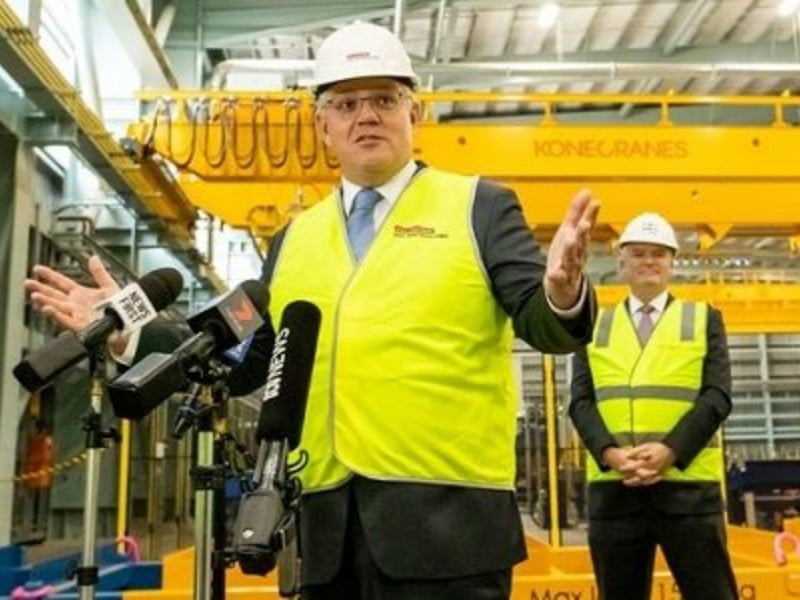The government’s anti-trolling bill is not actually about online safety or combatting trolls, according to department staff, despite the Prime Minister claiming they are “some of the strongest powers to tackle online trolls in the world”.
Speaking at a senate inquiry last week, a number of department officials directly contradicted Prime Minister Scott Morrison over the purpose and impact of the Social Media (Anti-Trolling) Bill.
The bill would enable those who have been defamed to identify anonymous posters of defamatory material and reverse the High Court’s decision that administrators of social media pages are liable for defamatory comments posted by third parties.
When unveiling the draft bill late last year, Mr Morrison repeatedly said it was aimed at “combating online trolls”, will “better protect Australians online”, and would be “some of the strongest powers to tackle online trolls in the world”.

But despite these comments and the use of “trolling” in the legislation’s title, Attorney-General’s Department representatives have told the current Social Media and Online Safety inquiry the bill is about defamation only, and not about addressing trolls.
“I can be clear that the bill is about defamation and it is not intended to address broader types of online harm,” Attorney-Generals’ Department defamation taskforce assistant secretary Michael Johnson told the committee.
“What this bill is predominantly aimed towards is the person who wants to bring defamation proceedings, their circumstances are appropriately suited that defamation proceedings is an effective avenue for them to pursue, but the barrier that they face is the inability to identify the person who made the comment.”
While “trolling” is used in the title of the bill, it is not defined in the actual legislation and does not feature once. Mr Johnson said the title is a “product of government” and acknowledged that it is “potentially misleading”.
“The reason for it being in the title of the bill is that the behaviour that we are looking at is one form of trolling. But it’s certainly not intended to suggest that this bill seeks to address trolling generally nor online harm generally. It is a targeted bill that is about defamation and only defamation,” he said.
“There is a degree of disconnect between the title of the bill and the targeted subject of the bill.”
Speaking at a press conference on the day the legislation was announced, Mr Morrison said the reason he was there was to “ensure that Australians are safe online”, and that the bill was targeted at protecting children and women.
“I want to ensure our kids are safe. I want to ensure that women are safe,” Mr Morrison said late last year.
Development of the legislation has been led by the Attorney General’s Department rather than the communications department, where the eSafety Commissioner is housed.
Shadow cybersecurity minister Tim Watts asked communications department officials why this was the case.
“If this was a new legislative reform to protect children and young people from online harms, your department would have been leading it, not the Attorney-General’s Department?” Mr Watts said.
The Communications representative replied: “I think that’s right, yes.”
The real purpose of the bill was also questioned by University of Western Australia research associate and WA Australian of the Year 2019 Noelle Martin at the inquiry.
Ms Martin said the reforms would do nothing to assist victims of abuse online.
“I believe that the bill is not an online safety bill, and it’s not an unmasking online trolls bill. It is purely and simply an assisting well-resourced defamation claimants bill. If this committee is serious about addressing online safety…this bill contains fundamental flaws,” Ms Martin told the committee.
“It’s not worthy of its name. It’s utterly inaccessible for those who suffer the most profound harms facilitated by the internet. Without major ratifications to the bill it is a narrowly targeted reform that will only strengthen the hands of already powerful individuals. It is not a bill for the safety of everyday Australians.”
The Law Council of Australia have called for the proposed law to be scrapped, saying it will do nothing to address social media trolling, and may actually restrict the recourse available to people, encourage social media giants to censor posts and should be delayed until a nation-wide review of defamation laws is completed.
Do you know more? Contact James Riley via Email.

